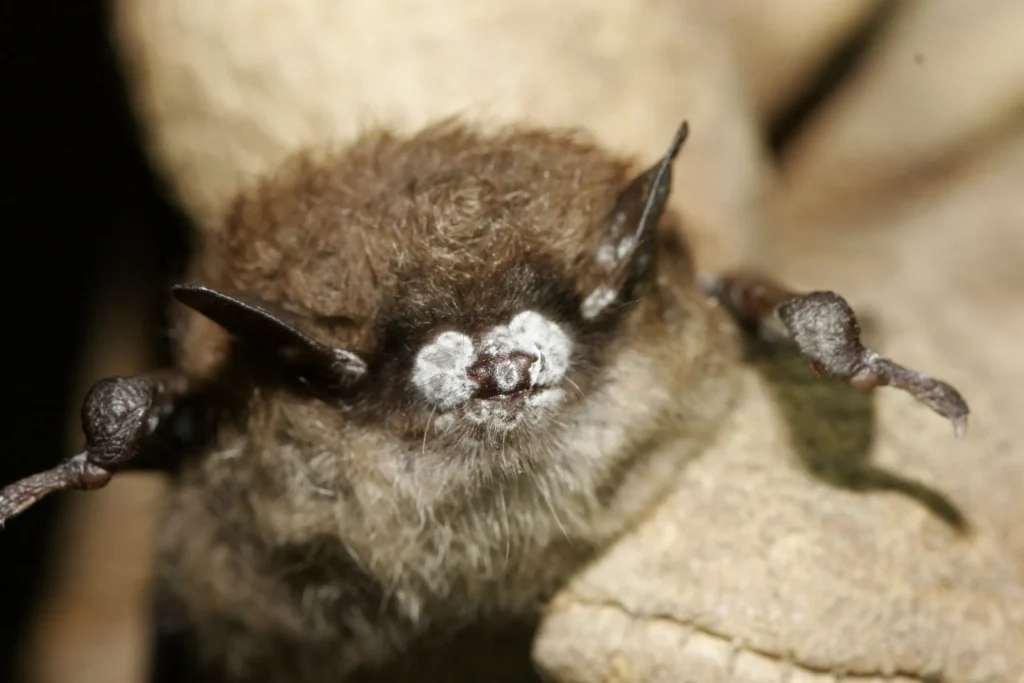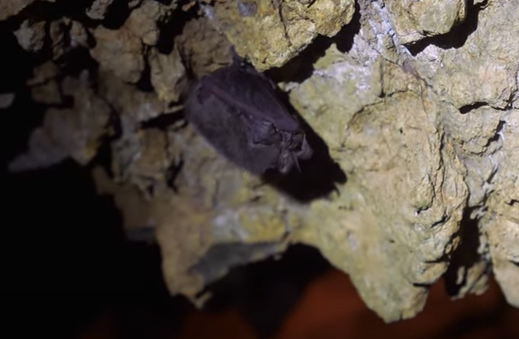Bats, vital to North America’s ecosystems, are facing a dire threat with the spread of White-Nose Syndrome (WNS), a fungal disease which disrupts their hibernation and results in starvation. Since 2018, Horne Lake Caves Provincial Park has implemented innovative measures to protect BC bat populations and prevent the transmission of WNS.
Although there are 9 different species of Bats found on Vancouver Island, sightings at Horne Lake Caves are fairly rare with no bat colonies residing in the caves. In the winter months, November to March, one or two bats may be spotted in a state of hibernation in the caves. Most bat colonies on Vancouver Island are found roosting in hollow trees, under bridges or in remote buildings/structures. The silent devastation wrought by WNS has left bat populations in Eastern Canada in disarray, with over 6 million succumbing to the disease across the continent. In response to this crisis, Horne Lake Caves Provincial Park has taken proactive steps to mitigate the impact on local bats.
One crucial measure is the implementation of a Bio-cleaning Station at the park entrance. Park visitors are required to walk over astro-turf and sponge mats containing Woolite detergent, a process that effectively cleans spores from their footwear. This strategic approach aims to curtail the unintentional transmission of WNS spores into and out of the cave park.
To further bolster these efforts, park management encourages visitors to refrain from bringing gear that has been used in other caves. This preventative measure significantly reduces the risk of introducing WNS spores inadvertently. Also encouraged is the decontamination of gear, a process which can include submerging materials in 55°C water for 20 minutes, or spraying and wiping down equipment with a 70% Isopropyl Alcohol Solution.
Central to the park’s mission is an educational component led by knowledgeable guides. These guides play a pivotal role in raising awareness among visitors about the crucial role bats play in maintaining ecological balance. By imparting the values of bats and elucidating the severity of the WNS threat, guides instill a sense of responsibility in visitors to actively participate in bat conservation.
Horne Lake Caves Provincial Park’s approach not only focuses on the immediate mitigation of WNS but also aims to foster a long-term commitment to bat conservation. By combining meticulous cleaning protocols, gear restrictions, and educational initiatives, it demonstrates how proactive measures can be employed to protect vulnerable wildlife populations.
As we navigate the delicate balance between human recreation and ecological preservation, the efforts at Horne Lake Caves Provincial Park serve as a testament to the importance of responsible tourism and conservation. It is a collective responsibility to safeguard the intricate ecosystems that rely on these flying mammals, ensuring that future generations can continue to marvel at the beauty and significance of North America’s bat populations.
You can learn more at www.whitenosesyndrome.org and https://wcsbats.ca/



Leave a Reply